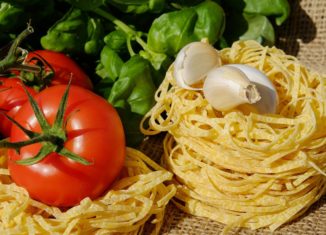
Believe it or not, the earliest Romans didn’t employ seasoning in their dishes the way modern Italians do. The fare was simple, maybe just a sprinkle of salt and a splash of olive oil, and that was about it! This began to change as the Roman Empire grew into a continents-spanning entity, herbs and spices from its far-flung corners began to find their way to Rome, and the Romans liked what they tasted. A cookbook from the 1st Century CE, De Re Coquinaria, contained recipes which called for “a generous application of herbs and spices.” Today the very idea of Italian food without the seasoning is unthinkable, one cannot have one without the other!
The magic of Italian
Time and again, Italian takes the Number One spot on the list of the world’s most popular national cuisines. Chinese usually comes second, and after all, the Italians have them to thank for pasta! There’s something magical about a big plate of steaming hot Spaghetti Bolognese or Penne Melanzane, just the very thought makes the mouth water! If you aren’t sure what I’m talking about, then you owe it to yourself to head down to the Gregory Hills restaurants, you will find the tastiest Italian food in town there!
Seasoning for all seasons
Great Italian food contains great seasoning, of course, the following is a list of the essentials:
- Basil – Originally from India, this highly fragrant herb was once known in Italy as a symbol of love, and it’s easy to see why- it’s simply scrumptious. Often used in tomato sauce to give it an aromatic zip.
- Thyme – Indigenous to the Mediterranean region, Thyme has both culinary and medicinal uses, having antimicrobial properties. Its minty flavour and strong aroma make it a favourite in meat dishes and stews.
- Oregano – Also hailing from the Mediterranean, this cousin of thyme has a warm, earthy, and slightly bitter taste, and is often used to season grilled vegetables, meat, and fish dishes.
- Rosemary – Another Italian native, Rosemary has a unique, intense aroma, and a distinct flavour that lends itself to chicken dishes, pasta dishes, and sauces.
- Bay Leaves – Native to the Mediterranean region, the aromatic bay leaf comes from an evergreen shrub. Its tough texture precludes eating it directly, so it is instead steeped in soups and sauces to lend them a strong, slightly smoky flavour.
- Sage – A favourite all across Europe, this perennial shrub, a member of the mint family, is one of the most popular herbs in Italy thanks to its savoury, slightly peppery taste.
- Parsley – Thought to be native to North Africa, parsley is used in a wide variety of Italian dishes such as seafood and vegetable sauces, pasta dishes, and soups.
Italian seasoning is delicious and healthy, containing antioxidants, vitamins and minerals. It ranks among the world’s most delicious and can be added to any savoury dish to give it that Italian flair. Buon appetito!
